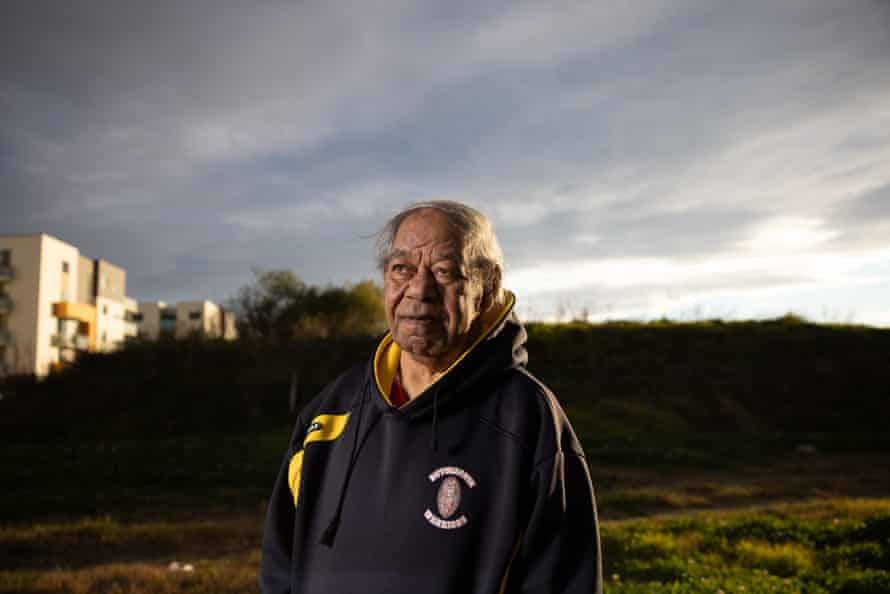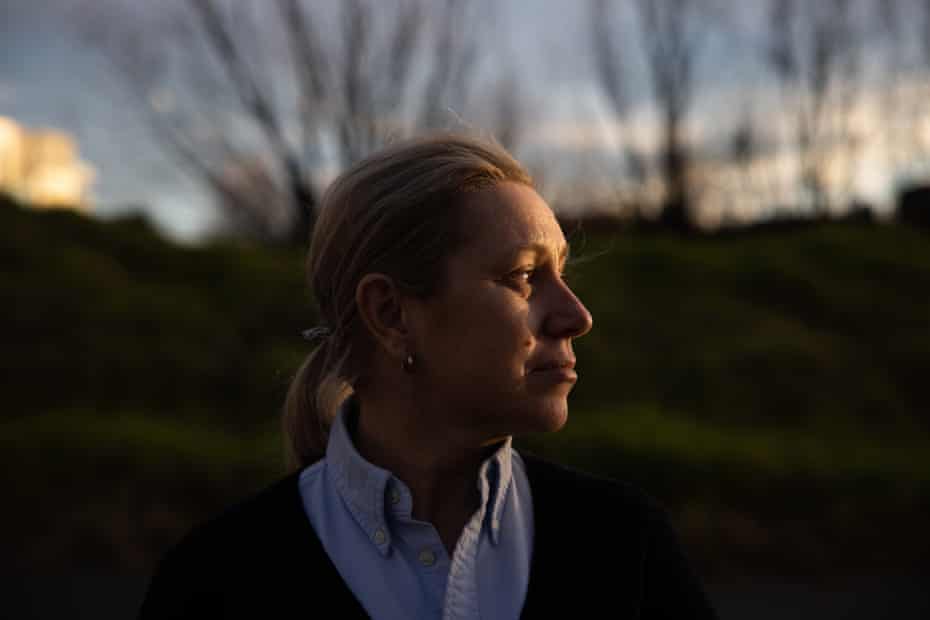‘We weren’t afforded dignity’: household needed to cellphone corrective providers to ask if father had died | Deaths in custody
TThe family of an Aboriginal who died in a New South Wales prison say it took authorities six hours to notify them, and the news came several hours after they received a message from a relative on Facebook.
Frank “Gud” Coleman, a 43-year-old Ngemba man, was found dead in his cell in Long Bay early Thursday, July 8th.
His daughter Lakota Coleman and former partner Skye Hipwell told Guardian Australia that a relative sent them a message on Facebook “to say he’s stopped responding” and they contacted Corrective Services NSW.
“We received no dignity or respect when we were informed of his death,” said Hipwell. “I then got in touch with corrections to say this is what we heard and they got back to us and said, ‘Oh yeah, I’m sorry to have to tell you, but he passed away this morning ‘. That was a good six hours later [his death]. I think we were only told shortly before noon. “
Corrective Services NSW said it was the job of the police to inform next of kin of every death in custody.
“Corrective Services NSW notifies the NSW police immediately after a death in custody and provides the contact details of the next of kin from our records. In this case, the notification was delayed because the contact details provided to us were incorrect, ”said a spokesman.
“Information about deaths in custody is treated sensitively and respectfully, with the greatest attention to the relatives of the deceased.”
Police told the Guardian that “the man’s nominated next of kin have been notified by NSW police according to standard procedures” and a report is being prepared for the coroner.
Frank Coleman’s daughter Lakota Coleman. Photo: Carly Earl / The Guardian
Hipwell said Coleman suffered from mental health problems made worse by the death of their 20-year-old son Ricardo.
Ricardo Coleman was shot dead on the street near his home in 2016. Three years later, his killer was convicted of manslaughter and was serving a 16-year prison term. A coronal examination is planned for this year.
“The decline in his mental health was pretty rapid from there,” said Hipwell. “That shaped him emotionally.”
Hipwell said Frank Coleman served 18 months of a three-year prison sentence on his death but had no personal visits during that time due to Covid restrictions. She said he was moved to three different NSW prisons before being sent to Long Bay.
“Obviously, corrective services have their thing with Covid, but when you are several hours away and rely on public transport, how can you visit people and try to fit into the confines of isolation?” because of Covid? “
Corrective Services NSW said all personal visits were restricted over the past year to keep Covid safe.
“We recognize that contact visits are extremely important for inmates and their relatives,” said a spokesman. “Between March 16 and November 23 last year, there were restrictions on all personal visits. During this time we worked hard to improve the contact between inmates and families via telephone and video visits. “
But Hipwell said, “A six-minute phone call may seem long to some people, but if you have a lot of grief and trauma about what he did, how do you have those conversations within a six-minute block?”
 Frank Coleman’s father Robert. Photo: Carly Earl / The Guardian
Frank Coleman’s father Robert. Photo: Carly Earl / The Guardian
Coleman is the ninth Aboriginal person to die in custody since March of this year, and one of at least 478 since the Royal Commission into Aboriginal Deaths in Custody ended in 1991.
“He’s not another number, he’s an individual,” said his daughter Lakota Coleman. “We want him to be remembered as a loving, steadfast man, proud of his cultural heritage and of his children who are still here and who have unfortunately passed away.
“Dad was a person who made everyone smile and laugh. Anyone who met him could not leave a conversation without laughing or smiling or being in a good mood. “
Now the family has to undergo two coronal examinations.
“I would never want a family to have to go through this,” said Hipwell. “I can’t even explain what it feels like to lose your child. My children had to lose a brother and now their father. There are two Aboriginal men in their life who in a short span of four years have gone without giving us an explanation.
“We will never reach a finality on Ricardo’s death, but now the ramifications of [Frank’s death] on my children and also on the Aborigines in his family and his father is absolutely extraordinary. “
NSW Greens MP David Shoebridge said the disrespect shown to many First Nations families following a death in custody was totally unacceptable, “but it is far from unusual.”
 “I never want a family to go through this,” said Frank Coleman’s former partner Skye Hipwell. Photo: Carly Earl / The Guardian
“I never want a family to go through this,” said Frank Coleman’s former partner Skye Hipwell. Photo: Carly Earl / The Guardian
Shoebridge was a member of a parliamentary inquiry into the high number of First Nations imprisoned, which released its final report in February. The committee – made up of Liberals, Labor MPs, Greens, National and One Nation MPs – made 39 recommendations that the NSW government must respond to by October 15.
Shoebridge said a response was urgently needed.
“After so many deaths in custody just this year, the NSW government is still not prioritizing its response to recent calls for reform of deaths in custody,” he said. “This is a crisis, it has to be treated like a crisis, not put on hold for another 30 years.”
NSW Attorney General Mark Speakman said the government had “closely and carefully” examined the recommendations.
The Aboriginal detention is a “national tragedy for which there is no single or simple solution,” he said.
“I cannot imagine the trauma and grief that Mr Coleman’s family must have after his tragic death.
“In NSW, Aboriginal people make up about 3% of the total population, but about a quarter of the adult prison population. This is – quite simply – a national tragedy.
“In the criminal justice system, we are taking a number of initiatives to address this terrible overrepresentation – including record investments to reduce relapses and more opportunities for community-based punishment. But we can and must do better. “
In Australia, the emergency response service is Lifeline 13 11 14. In the UK and Ireland, Samaritans can be contacted on 116 123 or by email at [email protected] or [email protected]. In the US, reach the National Suicide Prevention Lifeline at 800-273-8255 or chat for assistance. You can also send an SMS with HOME to 741741 to connect with a Crisis Line Advisor. Further international hotlines can be found at www.befrienders.org


Comments are closed.